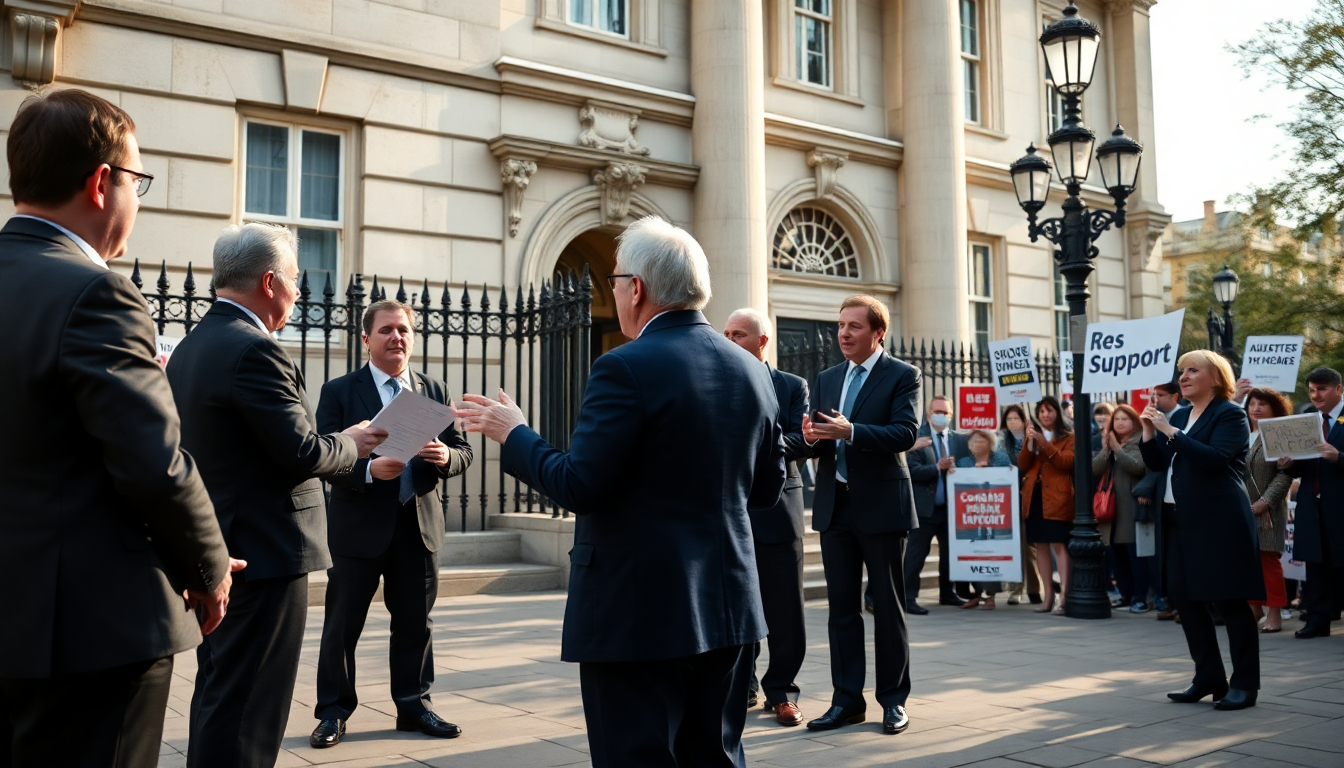Table of Contents
British politics is always in motion, and right now, it’s buzzing with fresh developments that are raising eyebrows and sparking discussions about where we’re headed next. One of the most talked-about moves is the defection of Sir Jake Berry, a former Conservative chairman and ally of Boris Johnson, who has decided to jump ship to Reform UK. This shift not only puts pressure on Kemi Badenoch’s leadership but also hints at a possible shake-up in party dynamics that could affect future policies.
The implications of Sir Jake Berry’s defection
When Sir Jake Berry announced his departure from the Conservative Party, it sent shockwaves through Tory ranks, highlighting some serious cracks and differing ideologies among party members. As a well-known figure closely linked to the former Prime Minister, his exit raises important questions about loyalty and unity within the party. For Kemi Badenoch, this is a major hurdle as she tries to steer the ship through already choppy waters.
Berry’s decision could inspire others within the party who are feeling disillusioned with the current course of the Conservatives. With discussions heating up around Reform UK—an emerging party aiming to attract disgruntled Conservative voters—the stakes couldn’t be higher. If more former Tories flock to Berry’s new platform, it could dilute the Conservative voter base significantly.
Policy negotiations and international relations
As the political landscape shifts, we’re also witnessing important developments on the international front. The upcoming Anglo-French summit is set against this backdrop, with Prime Minister Sir Keir Starmer working to finalize a migration agreement with French President Emmanuel Macron. This deal is crucial for tackling the ongoing issue of small boat crossings, a hot topic in British politics today.
The proposed migration deal aims to deter illegal crossings and foster better cooperation between the UK and France. If negotiations succeed, it could boost Starmer’s standing, proving he can effectively handle pressing issues and perhaps even sway public opinion in his favor. But let’s be real—the success of such agreements will ultimately hinge on how well they are implemented, as well as the political climate in both countries.
Looking ahead: Reshuffles and strategic shifts
Amidst all this, there are murmurs of a potential reshuffle within No10, adding to the intrigue surrounding the current administration. But will this reshuffle bring about any real change, or is it just a cosmetic fix for leadership issues? With the political landscape so uncertain, any strategic moves must be carefully thought out to avoid alienating voters even further.
In summary, the recent political shifts and ongoing negotiations paint a picture of a dynamic environment filled with uncertainty and the potential for realignment. As the Conservative Party grapples with its internal challenges, the fallout from these changes could play a pivotal role in shaping the future of British politics. Both observers and stakeholders will be keeping a close eye on how these developments unfold and what they mean for policy and governance.


